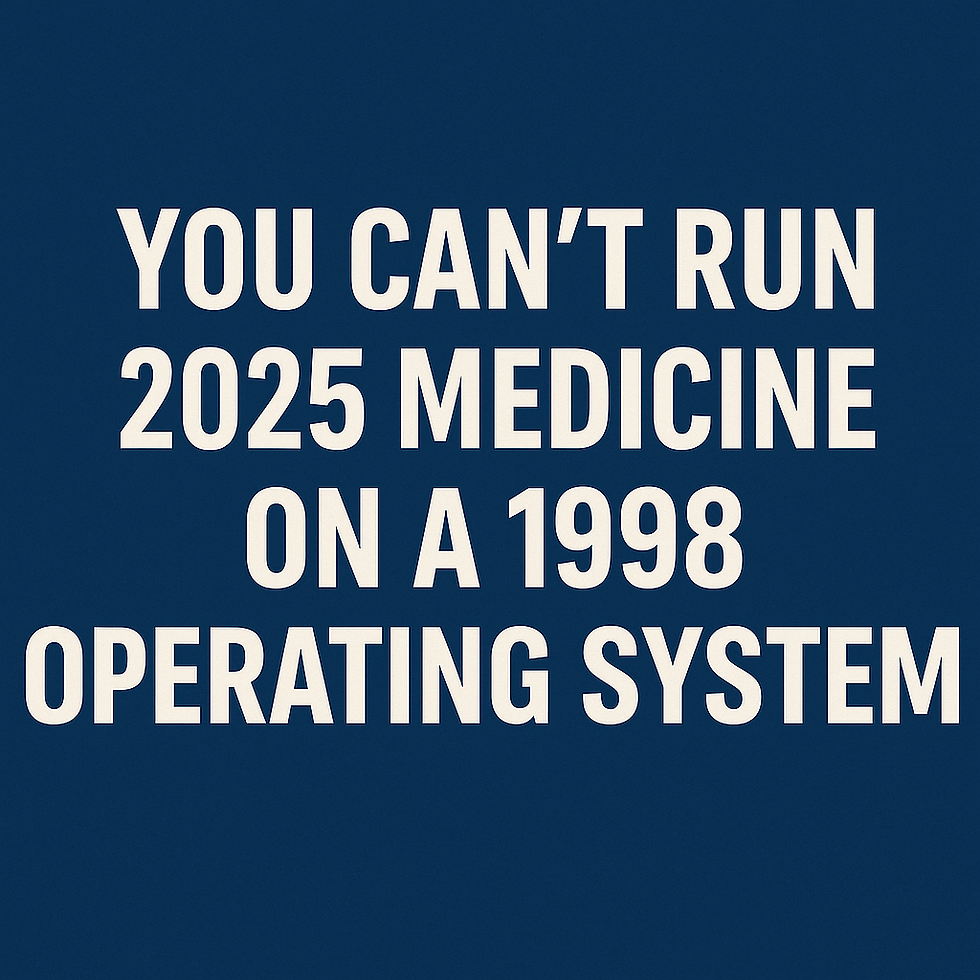Custom Solutions for Healthcare Business Development
- Elevate Health Consulting

- Sep 13, 2025
- 4 min read
Updated: Nov 4, 2025
Understanding the Need for Custom Solutions
Healthcare is not a one-size-fits-all industry. Each organization has its own set of challenges, goals, and patient demographics. Therefore, a generic approach to business development often falls short.
Custom solutions allow healthcare businesses to address their unique needs. For instance, a small clinic may require different strategies compared to a large hospital network. By understanding the specific context of your organization, you can develop targeted solutions that drive growth and improve patient care.
Key Areas for Custom Solutions
When considering custom solutions for healthcare business development, several key areas should be addressed:
1. Patient Engagement
Engaging patients is crucial for any healthcare organization. Custom solutions can enhance communication and interaction with patients.
Example: A telehealth platform tailored to the needs of a specific patient demographic can improve access to care. For instance, a platform designed for elderly patients may include larger text and simplified navigation.
2. Data Management
Effective data management is essential for making informed decisions. Custom solutions can streamline data collection and analysis.
Example: A custom electronic health record (EHR) system can be designed to meet the specific needs of a specialty clinic. This ensures that healthcare providers have access to relevant patient information quickly.
3. Marketing Strategies
Marketing in healthcare requires a nuanced approach. Custom marketing strategies can help organizations reach their target audience effectively.
Example: A local hospital may benefit from a community-focused marketing campaign that highlights its services and community involvement. This can foster trust and attract new patients.
4. Staff Training and Development
Investing in staff training is vital for maintaining high standards of care. Custom training programs can address specific skill gaps within your organization.
Example: A custom training program for nurses in a pediatric unit can focus on the unique challenges of caring for children, ensuring that staff are well-prepared to meet their needs.
5. Technology Integration
Integrating technology into healthcare operations can enhance efficiency. Custom solutions can ensure that technology aligns with organizational goals.
Example: A custom patient management system can be developed to integrate with existing software, allowing for seamless communication between departments.
Implementing Custom Solutions
Implementing custom solutions requires careful planning and execution. Here are some steps to consider:
Step 1: Assess Your Needs
Begin by conducting a thorough assessment of your organization's needs. Identify specific challenges and areas for improvement.
Step 2: Engage Stakeholders
Involve key stakeholders in the process. This includes staff, patients, and leadership. Their insights can provide valuable perspectives on what solutions will be most effective.
Step 3: Develop a Strategy
Create a detailed strategy outlining the custom solutions you plan to implement. This should include timelines, resources needed, and expected outcomes.
Step 4: Monitor and Evaluate
Once solutions are in place, monitor their effectiveness. Collect feedback from staff and patients to evaluate the impact of the changes.
Step 5: Adjust as Needed
Be prepared to make adjustments based on feedback and changing circumstances. Flexibility is key to successful implementation.
Real-World Examples of Custom Solutions
To illustrate the effectiveness of custom solutions, let’s look at a few real-world examples:
Example 1: A Community Health Center
A community health center faced challenges in patient engagement. They implemented a custom mobile app that allowed patients to schedule appointments, access health information, and communicate with providers. As a result, patient satisfaction increased, and appointment no-shows decreased significantly.
Example 2: A Specialty Clinic
A specialty clinic struggled with data management. They developed a custom EHR system tailored to their specific needs. This system streamlined patient information access and improved care coordination among providers. The clinic saw a marked improvement in operational efficiency.
Example 3: A Hospital Network
A large hospital network wanted to enhance its marketing efforts. They created a custom marketing strategy that focused on community outreach and education. This approach not only increased patient volume but also strengthened the hospital's reputation in the community.
The Role of Technology in Custom Solutions
Technology plays a crucial role in developing custom solutions for healthcare business development. Here are some ways technology can enhance your efforts:
1. Telehealth Solutions
Telehealth has become increasingly important, especially in recent years. Custom telehealth solutions can cater to specific patient populations, making healthcare more accessible.
2. Data Analytics
Advanced data analytics tools can help healthcare organizations make data-driven decisions. Custom analytics solutions can provide insights tailored to your organization's goals.
3. Patient Portals
Custom patient portals can enhance patient engagement by providing easy access to health information, appointment scheduling, and communication with providers.
4. Workflow Automation
Automating workflows can improve efficiency and reduce administrative burdens. Custom automation solutions can be designed to fit the unique processes of your organization.
Challenges in Implementing Custom Solutions
While custom solutions offer many benefits, there are challenges to consider:
1. Cost
Developing custom solutions can be expensive. It is essential to weigh the potential return on investment against the costs involved.
2. Resistance to Change
Staff may resist changes to established processes. Effective communication and training are crucial to overcoming this resistance.
3. Time Constraints
Implementing custom solutions can be time-consuming. It is important to allocate sufficient time and resources to ensure successful implementation.
The Future of Healthcare Business Development
As the healthcare landscape continues to evolve, the need for custom solutions will only grow. Organizations that embrace tailored strategies will be better positioned to meet the challenges ahead.
Trends to Watch
Increased Focus on Patient-Centered Care: Custom solutions that prioritize patient needs will become more prevalent.
Integration of Artificial Intelligence: AI can enhance decision-making and improve operational efficiency.
Emphasis on Data Security: As data breaches become more common, custom solutions that prioritize security will be essential.
Final Thoughts
Custom solutions are vital for effective healthcare business development. By understanding your organization's unique needs and implementing tailored strategies, you can drive growth and improve patient care.
As you consider your approach, remember that flexibility and adaptability are key. The healthcare landscape is ever-changing, and your solutions should evolve alongside it.
By investing in custom solutions, you are not just enhancing your business; you are also improving the lives of the patients you serve.





Comments